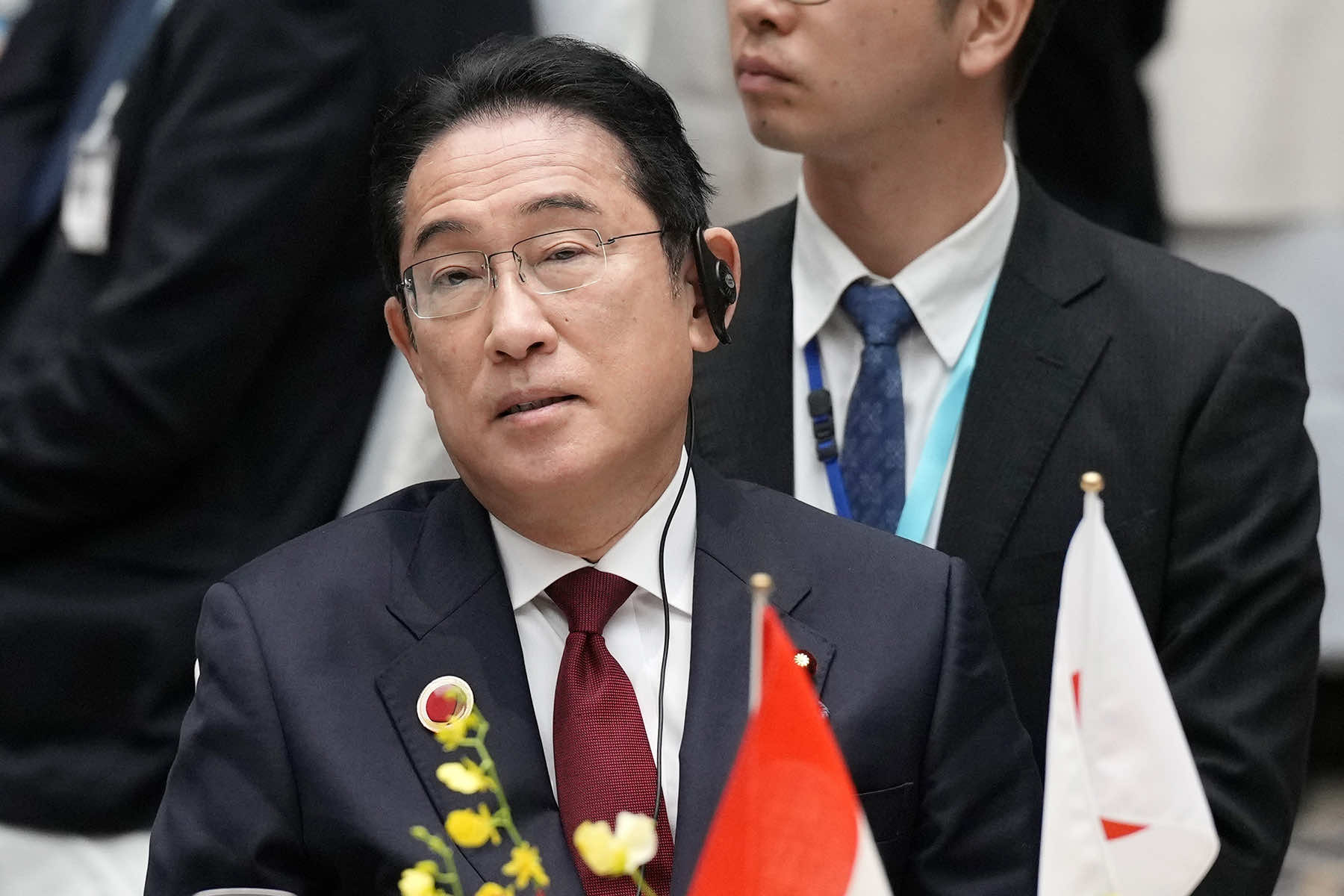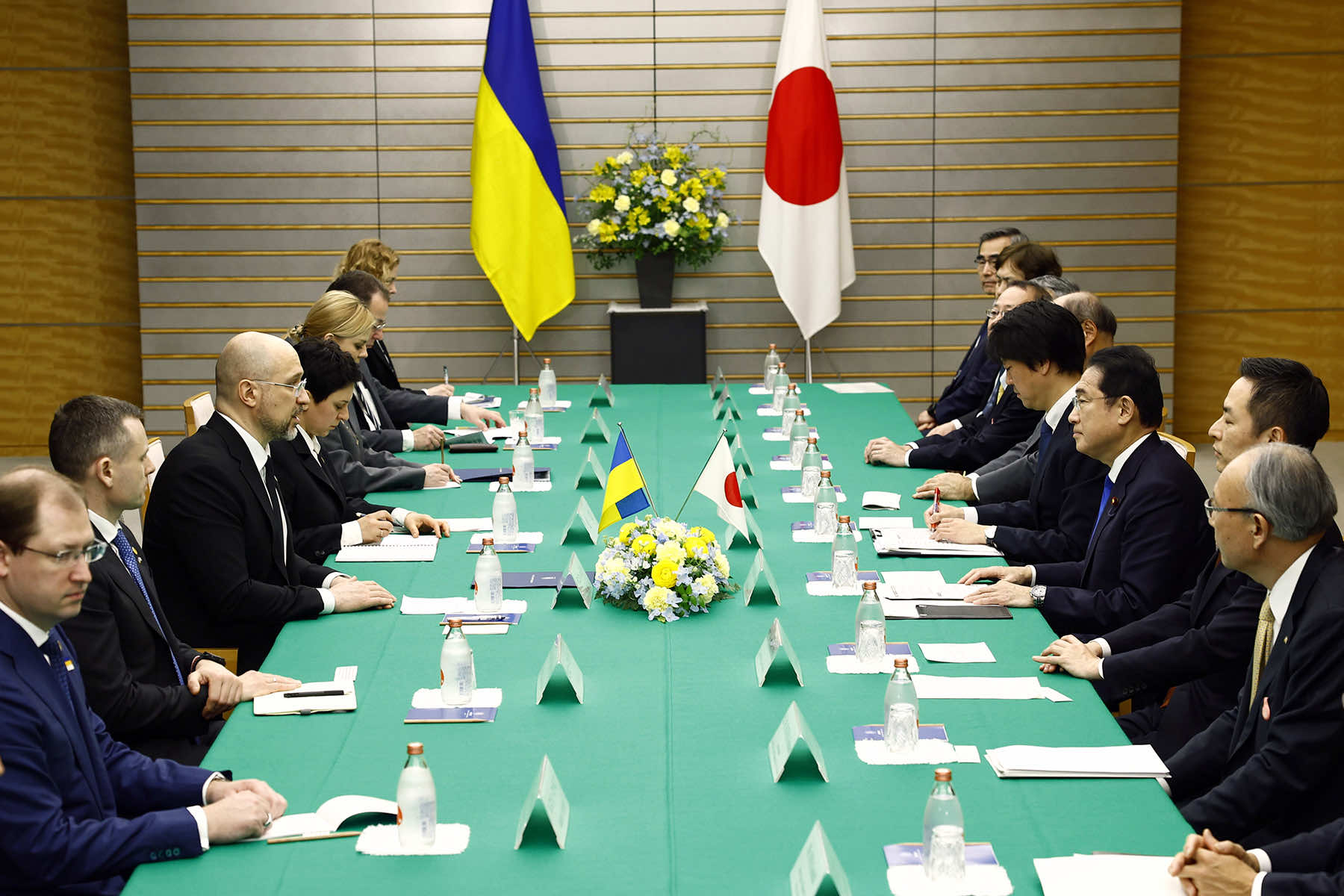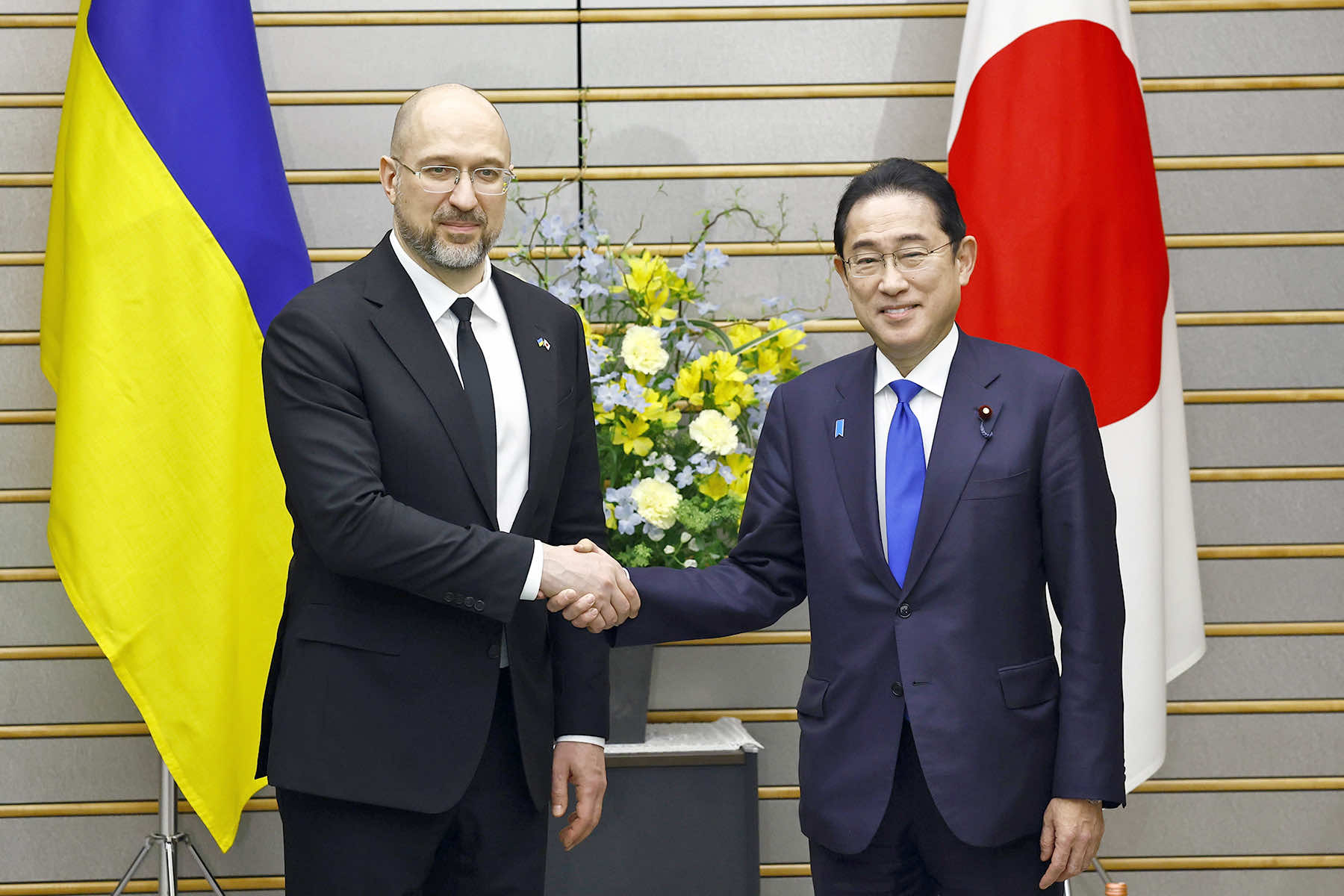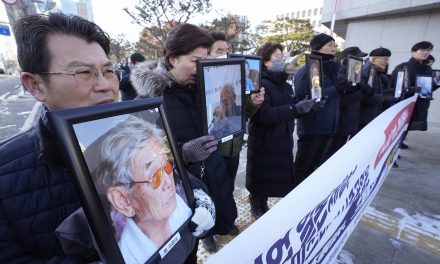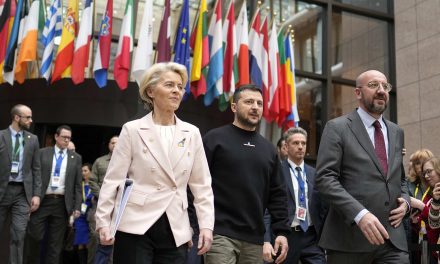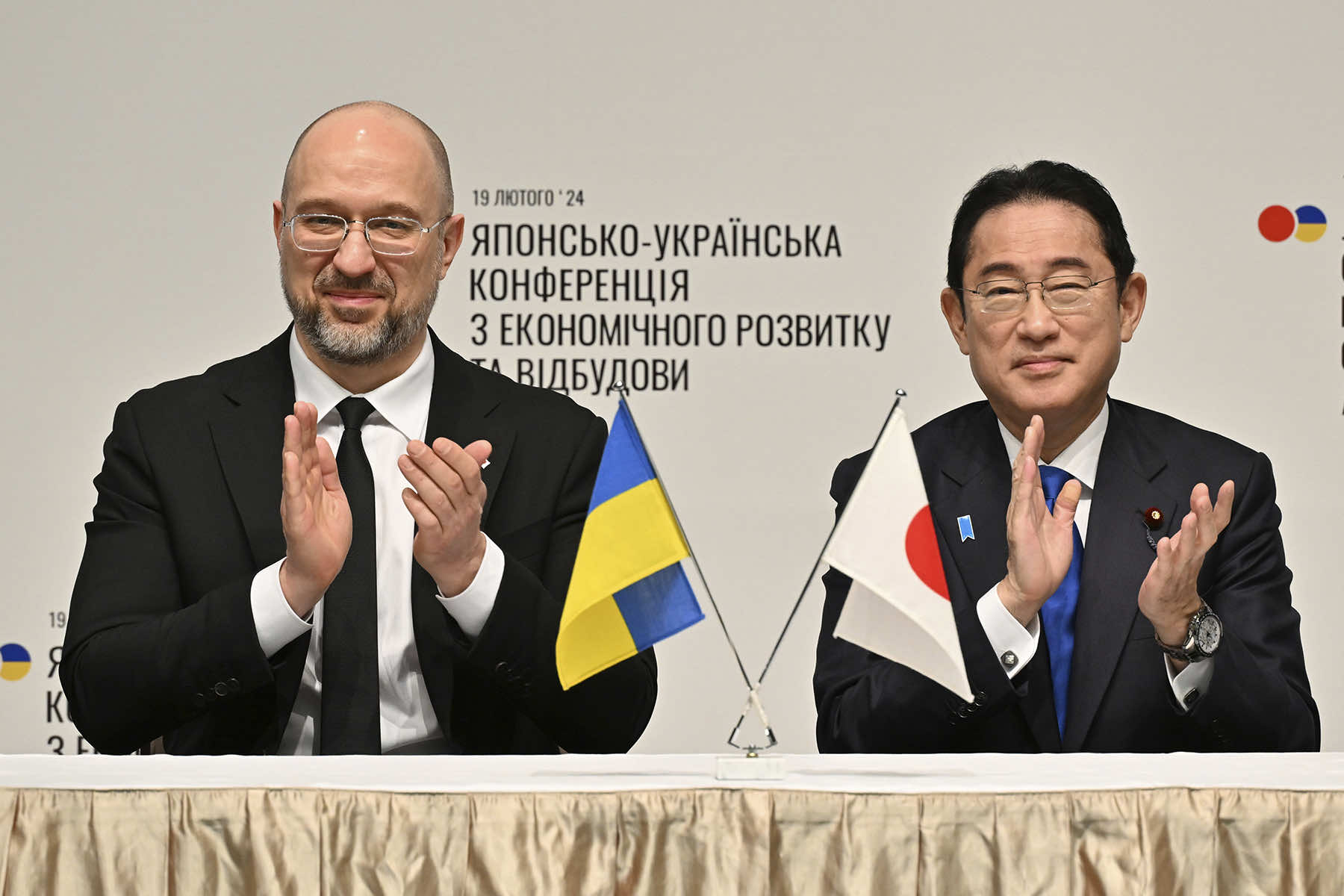
Japan’s Cabinet approved a plan to sell future next-generation fighter jets to other countries on March 26. It is the latest step away from the pacifist principles the country adopted at the end of World War II.
The controversial decision to allow international arms sales is expected to help secure Japan’s role in a year-old project to develop a new fighter jet together with Italy and the U.K., but it is also part of a move to build up Japan’s arms industry and bolster its role in global affairs.
Japan has long prohibited most arms exports under the country’s pacifist constitution, although it’s begun to take steps toward a change amid rising regional and global tensions. In 2014, it began to export some non-lethal military supplies, and last December, it approved a change that would allow sales of 80 lethal weapons and components that it manufactures under licenses from other countries back to the licensors.
The change, which was made in December, cleared the way for Japan to sell U.S.-designed Patriot missiles to the United States, helping replace munitions that Washington is sending to Ukraine.
Japan sees China’s rapid military buildup and its increasing assertiveness as threats, especially growing tensions in the disputed East and South China Seas. Japan also sees increasing joint military exercises between China and Russia around Japan as a threat.
Because of its wartime past as an aggressor and the devastation that followed its defeat in World War II, Japan adopted a constitution that limited its military to self-defense and long maintained a strict policy to limit transfers of military equipment and technology and ban all exports of lethal weapons.
Opposition lawmakers and pacifist activists have criticized Kishida’s government for committing to the fighter jet project without explaining to the public or seeking approval for the major policy change. Recent polls show public opinion is divided on the plan.
To address such concerns, the government will limit exports of co-developed lethal weapons to the jet for now, and has promised that no sales will be made for use in active wars. If a purchaser begins using the jets for war, Defense Minister Minoru Kihara said, Japan will stop providing spare parts and other components.
Japan has earned a strong reputation for economic and development cooperation under its post-World War II pacifist policy that commits it to never using force against other nations. Tokyo has eased that restraint to build up a military deterrence against China, but its support for Ukraine has largely been for humanitarian assistance. It has limited its supplies of military equipment to non-lethal weapons.
The government hopes to facilitate private sector investment while minimizing risks of business operations in Ukraine. Japan’s $12.1 billion contribution to Ukraine over the past two years is much smaller than the $111 billion that the United States and other Western nations have provided in weapons, equipment and humanitarian assistance.
Ukrainian officials have expressed high expectations for Japanese companies’ expertise in technology, and Japan’s experience in postwar and disaster reconstruction. Ukraine’s reconstruction also will mean future investment and business opportunities for the startups, who were the majority of companies attending the conference.
The Japanese government has chosen seven target areas — including removal of mines and debris; improvement of humanitarian and living conditions; farming; biochemical manufacturing; digital and information industries; infrastructure for power generation and transportation and anti-corruption measures.
A Tokyo-based bridge-builder, Komaihaltec, is to jointly develop small wind power generation facilities with Ukraine’s state gas operator. Sumitomo Corp. and Kawasaki Heavy Industries agreed on a joint study with the Gas Transmission System Operator of Ukraine on modernizing gas compressor stations.
Rakuten Symphony and Ukrainian telecom Kyivstar plan to jointly rebuild digital infrastructure. One Japanese startup has developed radar-mounted landmine removal equipment and another helps optimize farming by analyzing soil components using satellite imagery.
Japan has expressed its continued support of all phases of Ukraine’s reconstruction, from its initial emergency recovery to economic reconstruction and industrial development. The two countries signed a tax convention in February and are to begin reviewing an investment treaty. Japan also plans to ease visa requirements for Ukrainian citizens.
Having risen from the ashes of devastation from World War II and from the damage caused by major earthquakes and other disasters, Japan believes it has a special role to play in aiding Ukraine’s rebuilding.


